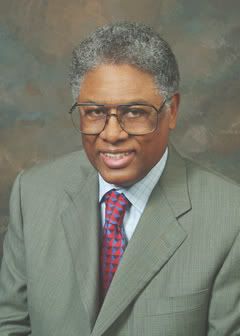
Posted on 12/30/2013 1:25:48 PM PST by jazusamo
Front-page editorials, disguised as news stories, have become such familiar features of the New York Times that it should have been no surprise to discover in the December 28th issue a front-page story about a professor of finance at the University of Houston who has been a paid consultant to financial enterprises.
Since professors of all sorts have been paid consultants to organizations of all sorts, it is questionable why this was a story at all, much less one that covered an entire inside page, in addition to a central front-page opening, under the headline "Academics Who Defend Wall St. Reap Reward."
Do academics who attack Wall Street, as consultants to government agencies or other organizations, not get paid?
Like the corrupt French official in the movie classic "Casablanca," the New York Times is "shocked, shocked" to discover that consultants get paid defending the kinds of people that the New York Times attacks.
Where has the New York Times been all these years, as government agencies of all sorts spend the taxpayers' money not only to hire consultants but also to hand out research grants to professors, institutions and programs that promote the kinds of policies that serve the institutional interests of these agencies?
Back when I was an economist at the U.S. Department of Labor, many years ago, officials there spoke in reverential tones about Professor Richard A. Lester, an economist at Princeton University who sometimes came down to Washington to advise the Department.
(Excerpt) Read more at creators.com ...

Good column.
Sowell turned 83 this year. I hope he lives and writes for many years to come, and that I will make 1/10 as much sense when I am 83 (assuming I get there).
Well said and I do too.
Apply the same idea Sowell points out here, with respect to economists, to scientists paid by the government on Catastrophic Anthropogenic Global Warming issues, vs. scientists paid by others (oil companies et al). Note the government scientists are being paid by people with a vested interest in increasing their own power via the findings of those paid-for scientists.
And Sowell already covered that. That’s what I get for posting based on the excerpt instead of reading the full article first.
Always brilliant !
I’ve done it too. :-)
Dr. Sowell’s piece brings to mind all the “scientists” and lawyers on the staffs of every environmental and animal rights org in the country and there are many. They always seem to agree with the orgs purpose which is most always fund raising.
What is really corrupting is camouflaging an editorial as a "news" story — and acting as if people who represent one side of a controversial issue are somehow less worthy than people who represent the opposite side that happens to be favored by the New York Times.IOW, there is no reason to suppose that journalists will not “camouflag[e] an editorial as a "news" story — and act as if people who represent one side of a controversial issue are somehow less worthy than people who represent the . . . side that happens to be favored by the New York Times.The natural disposition is always to believe. It is acquired wisdom and experience only that teach incredulity, and they very seldom teach it enough. The wisest and most cautious of us all frequently gives credit to stories which he himself is afterwards both ashamed and astonished that he could possibly think of believing.The man whom we believe is necessarily, in the things concerning which we believe him, our leader and director, and we look up to him with a certain degree of esteem and respect. But as from admiring other people we come to wish to be admired ourselves; so from being led and directed by other people we learn to wish to become ourselves leaders and directors. And as we cannot always be satisfied merely with being admired, unless we can at the same time persuade ourselves that we are in some degree really worthy of admiration; so we cannot always be satisfied merely with being believed, unless we are at the same time conscious that we are really worthy of belief. As the desire of praise and that of praise-worthiness, though very much a-kin, are yet distinct and separate desires; so the desire of being believed and that of being worthy of belief, though very much a-kin too, are equally distinct and separate desires.
The desire of being believed, the desire of persuading, of leading and directing other people, seems to be one of the strongest of all our natural desires. - Adam Smith, Theory of Moral Sentiments
The conceit of “journalistic objectivity” is humbug.
Thanks for the ping jaz. Two more good reads by Dr. Sowell.
Disclaimer: Opinions posted on Free Republic are those of the individual posters and do not necessarily represent the opinion of Free Republic or its management. All materials posted herein are protected by copyright law and the exemption for fair use of copyrighted works.